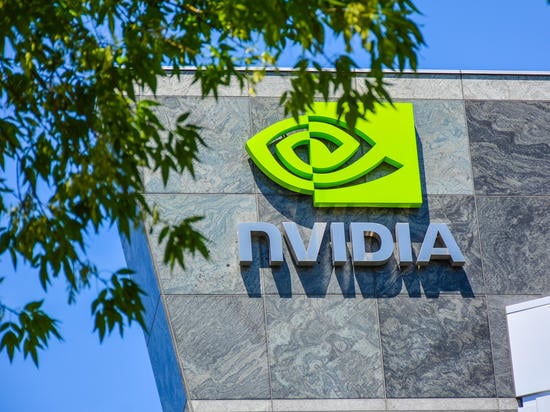Cracking the Code: Smart Strategies for Capturing DIY Investor Attention
Business
2025-03-20 15:03:25Content

A recent JD Power survey reveals a fascinating trend in the world of digital investing: 27 percent of robo-advisor users are considering transitioning to traditional financial advisory services. This surprising statistic presents a golden opportunity for established wealth management firms to tap into the younger, tech-savvy investment market.
The survey highlights a growing desire among digital investors for more personalized financial guidance. While robo-advisors have attracted millennials and Gen Z investors with their low-cost, automated investment strategies, many users are discovering the limitations of algorithm-driven investing. They are now seeking the nuanced expertise and human touch that traditional financial advisors can provide.
For wealth management firms, this represents a critical moment to bridge the digital divide. By developing hybrid advisory models that combine technological efficiency with personalized human insight, these firms can attract a new generation of investors who value both digital convenience and professional financial counsel.
The key for traditional wealth management firms will be to demonstrate their value proposition: offering sophisticated investment strategies, comprehensive financial planning, and tailored advice that goes beyond what automated platforms can deliver. This survey suggests that many robo-advisor users are ready to make that leap.
Digital Wealth Revolution: How Robo-Advisors Are Reshaping Financial Advisory Landscapes
In the rapidly evolving world of financial technology, a transformative shift is occurring that challenges traditional wealth management paradigms. The emergence of robo-advisory platforms has sparked a profound disruption in how younger generations approach investment strategies, signaling a critical moment of adaptation for established financial institutions.Navigating the Future of Personalized Financial Guidance
The Robo-Advisory Phenomenon: Bridging Technological Innovation and Investor Expectations
The digital financial landscape is experiencing an unprecedented metamorphosis driven by algorithmic investment platforms. Robo-advisors have emerged as sophisticated technological solutions that democratize investment access, offering low-cost, data-driven portfolio management strategies. These automated platforms leverage advanced machine learning algorithms to construct personalized investment portfolios, catering specifically to individual risk tolerances and financial objectives. Sophisticated investors are increasingly recognizing the potential of these digital platforms, which provide transparent, cost-effective investment solutions. By eliminating human bias and utilizing complex mathematical models, robo-advisors can generate investment recommendations with remarkable precision and efficiency.Generational Dynamics and Financial Technology Adoption
Millennials and Generation Z represent a pivotal demographic transforming financial service consumption. These tech-savvy generations demonstrate a remarkable propensity for digital-first financial solutions, challenging traditional advisory models. The JD Power survey reveals a nuanced perspective: while 27 percent of robo-advisory users express interest in seeking personalized human financial advice, the majority remain committed to technology-driven investment strategies. This statistic underscores a critical opportunity for traditional wealth management firms to reimagine their service offerings. By integrating technological innovation with personalized human expertise, financial institutions can create hybrid advisory models that appeal to emerging investor preferences.Strategic Implications for Traditional Wealth Management Firms
The convergence of technological innovation and investor expectations presents a transformative opportunity for established financial institutions. Traditional wealth management firms must proactively develop comprehensive digital strategies that seamlessly blend algorithmic precision with human insight. Successful adaptation requires significant investment in technological infrastructure, data analytics capabilities, and talent acquisition. Financial organizations must cultivate a culture of continuous innovation, embracing digital transformation as a core strategic imperative rather than a peripheral consideration.Technological Trust and Investor Confidence
Building investor confidence in algorithmic investment platforms necessitates transparent communication and robust security protocols. Robo-advisors must demonstrate sophisticated risk management capabilities, comprehensive compliance frameworks, and user-friendly interfaces that inspire trust and engagement. Advanced encryption technologies, real-time portfolio monitoring, and comprehensive educational resources can help mitigate investor concerns and promote broader technological adoption. By prioritizing user experience and technological reliability, robo-advisory platforms can establish themselves as credible, trustworthy financial solutions.Future Trajectory of Digital Wealth Management
The financial technology ecosystem continues to evolve at an unprecedented pace. Artificial intelligence, machine learning, and predictive analytics will play increasingly sophisticated roles in shaping investment strategies. Robo-advisors are poised to become more nuanced, offering hyper-personalized investment recommendations that adapt dynamically to changing market conditions and individual financial goals. As technological capabilities expand, the boundaries between human and algorithmic financial advice will become increasingly blurred, creating exciting opportunities for innovation and personalized wealth management solutions.RELATED NEWS
Business

Global Business Titans Mourn Pope Francis: A Legacy That Transcended Boardrooms
2025-04-21 18:44:23
Business

Survival Mode: Arcade Street Merchants Battle Road Construction with State Aid Plea
2025-04-07 11:00:00
Business

Green Profits: Why Rio Tinto's CEO Believes Climate Targets Are a Business Win
2025-02-20 01:29:31





